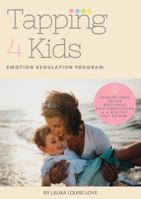“We forget that discipline really means to teach, not to punish”. – Dr. Daniel J. Siegel.
Have you ever thought about what life would be like if we used more of our brain power? The research shows we can even approach how we discipline in a more gentle way – one that fosters healthy brain development for our kids. To do this we need to give children the tools to use their whole brain at an early age. This involves engaging the use of both sides of their brains to work through challenges. Thinking laterally by using the analytical left hemisphere in addition to the imaginative and emotional right hemisphere. There is also an up and a down to the brain. It’s important to engage your children’s upstairs brain to help them calmly, morally and ethically reason when the downstairs brain – mainly entwined with the ‘fight or flight’ response tries to take hold of them! This downstairs brain is less about thinking and a whole lot more about being reactive.
An inability to control anger has far reaching consequences for adults; it can damage relationships and make an individual more likely to act on their aggression. We all experience conflicts and frustrations in our lives with kids being no different! One of the most important skills for children to master in their lives is how to make good decisions in high-emotion situations. The ability to in essence pause and think before we act. If we regularly teach kids how to handle their emotions appropriately it can help them become more resilient in later life.
There are so many everyday events that can be powerful learning opportunities for our kids if we only look. Here are some positive suggestions to help exercise the brain (for more age specific tips visit www.wholebrainchild.com);
- Develop consequences together – Proactive parenting means having a plan! Make some clear, reasonable behavioural expectations at home and work out appropriate consequences for violating rules together (i.e. having a privilege they enjoy taken away). Do this while they are calm so they know what to expect in future.
- Ask questions instead of just giving answers – Instead of giving orders, teach empathy by asking them how they think other people might feel about their actions.
- Ask kids to remember their day – Instead of the closed question ‘how was your day?’ try asking open ended questions like ‘tell me about what happened today?’ or ‘what was your high moment and your low?’. It’s a great opportunity to acknowledge their experiences while teaching them that feelings come and go.





Leave a Reply